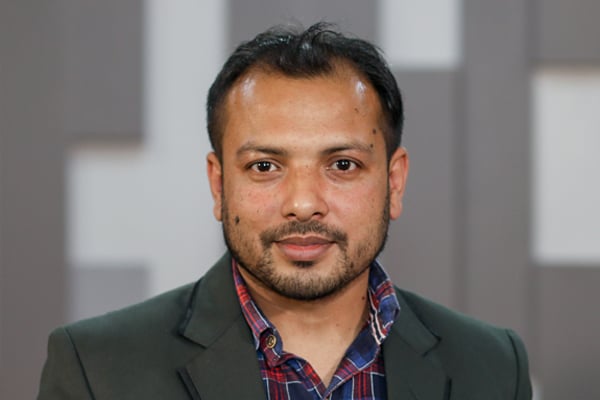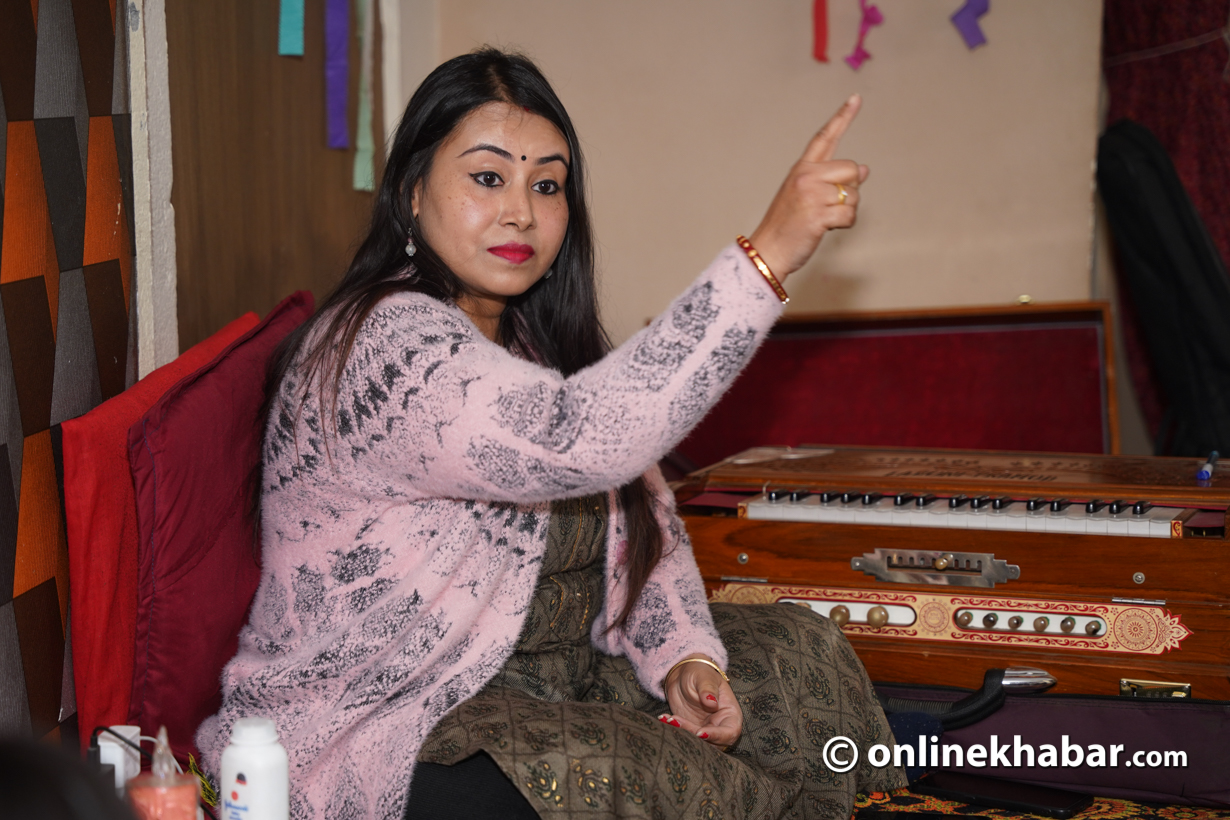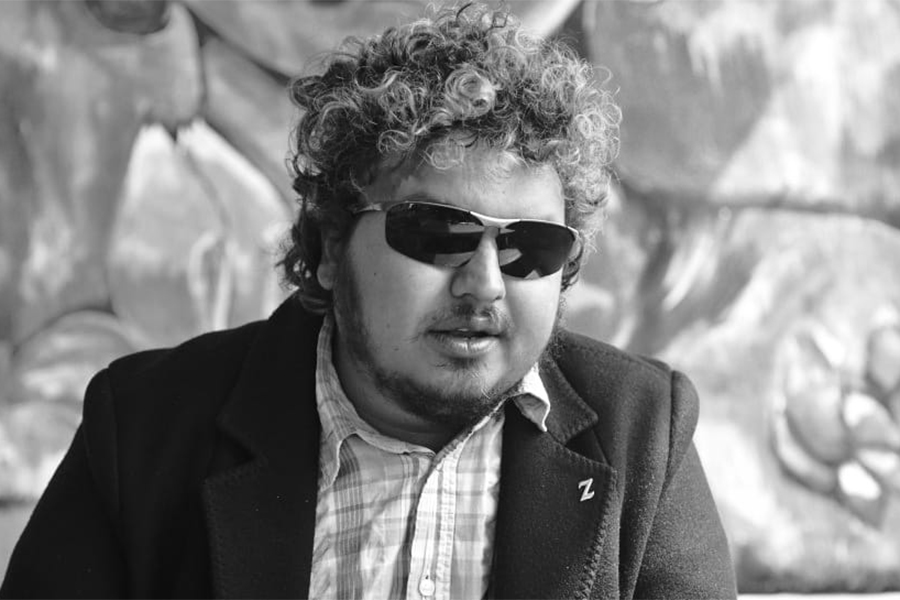
Ram Krishna Dhakal needs no introduction. He was at the top of the Nepali music industry for a good two decades. With his captivating voice and a collection of hit songs, Dhakal is someone who for a good part of that time was on the radio sets of Nepalis both home and abroad.
Despite starting his singing journey at a young age, Dhakal’s professional musical career officially started in 1990 with the release of his debut single Hamro Sundar Sansar Thiyo. It was the release of his album Asha in 1999 that solidified his status as a household name, particularly with the success of his song Orali Lageko, which propelled him to fame. From that point onward, Dhakal’s career soared to greater heights, as he sat on the top of the Nepali music scene with no competition.
Ram Krishna Dhakal has 18 albums and over 5,000 songs. His success has been such that there has even been a biopic made about his career. But as all good things come to an end, Dhakal’s fame is not the same anymore. While he still has his hardcore fans, he is not as popular as he was in the 90s and 2000s.
This is why he not rarely seen doing shows in Nepal.
“I do show internationally for Nepalis living there,” he told Onlinekhabar. “I was in the US for three months. It was great and I believe this is helping take Nepali music to the world.”
After returning from the US, he is off to Qatar. Soon he will be in Japan after which he will come back and complete recordings. Dhakal, like in the 00s, is still busy.
“Life is good,” he says.
Despite spending most of this time on foreign soil, Ram Krishna Dhakal, however, has no plans on selling abroad.
“I like Nepal. This is home,” he says.
Changing times

When Ram Krishna Dhakal started his career, making money through music was unheard of. It was seen as more of a passion project than a full-fledged career. However, with the advent of cassettes and the Walkman, slowly singers started to make good money through sales.
“I remember being told by fans how they saved lunch money to buy my albums,” he says.
However, getting to that point was not easy as becoming a singer was no easy feat. Before he started his career, he had to pass a vocal test at Radio Nepal. Only after passing that test, were singers allowed to sing.
“That is why I think recording an album back then had so much value. Things started to change post-2000,” he says.
In today’s era of the internet and accessible recording software, the process of creating music has become considerably easier. However, the sheer volume of songs being released daily can be overwhelming he says.
“The Internet has become a good space for singers to release their songs. However, it has also shadowed many good songs,” says Dhakal.
Ram Krishna Dhakal also feels the abundance of new songs has also sparked a competition for views. Dhakal notes that despite people putting in a lot of effort to create music, many struggle to attract views, which is a major concern.
“I have been releasing a song each month, but they are not that popular,” says Dhakal.
Cost of music
Following the release of Jalan, Ram Krishna Dhakal’s following songs have largely gone unnoticed by listeners, despite the positive reception of their accompanying videos.
“These days it is hard to make good music due to the high expenses,” says Dhakal. “It costs around Rs 100,000 to produce one song and can cost up to Rs 2 million to make a music video. And with the return on worthwhile, sometimes I question what are people doing.”
He feels it is impractical to be spending such money.
Ram Krishna Dhakal mentions on the notable shift in music trends, noting that unlike before, audiences no longer gravitate towards a single genre. Pop, folk, and lok dohori, among others, each cater to distinct markets. Additionally, songs that achieve viral status tend to target a separate demographic.
“The songs with good lyrics, melody and arrangements are not getting adequate views and I think that discourages many singers,” he says.
Now, as he nears his twilight years, Ram Krishna Dhakal now wants to open a music school where young kids get to showcase their talents. He says by doing so he wants to provide a platform to young people.
“I want to help these kids by giving them space and scholarships. And when I open my own recording studio in a few years, help them record their songs,” says.
Ram Krishna Dhakal says that such actions should ideally be taken by the government. However, given the government’s apparent indifference towards the sector, Dhakal feels that musicians like himself are left with the responsibility to address these issues on their own.
“If they want, they can take music to new heights. But they just don’t care,” he says.


























